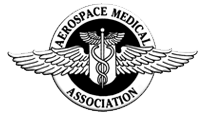Which Medicine Should You Take With a Cold?
You’ve got the sniffles, or a cough, or achy muscles, or a fever, or all of the above. Which over-the-counter (OTC) medication is best? Here are some helpful rules:
Don’t Go for the Rambo Strategy. Your cold symptoms usually come one after the other and rarely all at once. So don’t reach for a multisymptom mixture when you only have a runny nose. The best bet is to assess which symptom is most irritating and get a medication that attacks that symptom directly. Then, move on to the next symptom.
Go for the Nose Spray. The body releases chemicals when a cold sets in, causing the blood vessels in the infected area—your nose—to swell up. Decongestants act to constrict the blood vessels to provide relief. Oral decongestants will do this for the entire body, but they have side effects like nervousness or insomnia. Nose sprays target only the nose. If you’re still stuffed up after three days, give your nose a rest from the medication for a couple of days to prevent “rebound” stuffiness then go for the oral medication with pseudoephedrine.
Few Medicines Relieve a Sore Throat. Like the nose spray, it’s better to get a remedy that relieves only the sore throat. Throat lozenges and sprays help, as does gargling with warm salt water.
Time-Release Pills Really Do Work. Some medications require an every-four-hours dose. But if you’re busy at the office or at home, taking pills often slips your mind. Time-release capsules work so you get the right dosage throughout the day. As soon as you take the pill, the outer layer dissolves, releasing one dose. Then, four hours later, another coating dissolves and releases another dose.
Should You Fly With a Cold? When you’re not feeling well, your best action is to ground yourself and wait until you have recovered before resuming flying activities. There may be times, though, when you feel that you must fly and will be tempted to doctor yourself with over-the-counter medications. At these times, remember that OTCs frequently contain antihistamines or other sedating drugs. These must not be used if you intend to fly. Remember also that OTCs only hide your symptoms for a while—they usually don’t cure the condition, and you’ll not be at peak physical performance while you fly.



